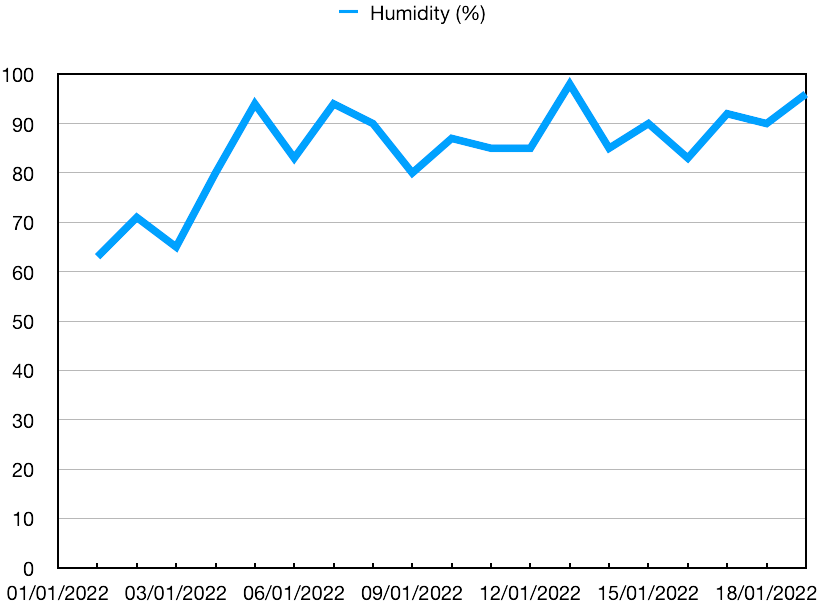Wednesday dawned cool, grey, and… wait for it… rainy. This has really been the “summer that never was”. I went for my 2.5k run in steady rain, because looking at the rain radar I didn’t have any confidence that the weather would be any better later on. I’ve been keeping track of the temperature and humidity when I do my runs. The temperature has mostly been around 25°C, give or take a few degrees, but check the humidity:

Yes, it’s been 80% or above every day since 4 January, over two weeks. And into the 90s on several days. It’s not great weather for running!
I spent a few hours today writing the next week’s ethics lesson. The topic this week is extinction. I found a very cool film of the last known thylacine, which has been colourised recently by the National Film and Sound Archive of Australia. And it’s public domain, so I could use it during my classes.
This was taken in 1933, and the animal shown died in 1936. No living thylacine has been seen ever since.
The class asks questions about whether humans have a moral responsibility to try to save species form extinction. Even if it’s not our fault – say a species is dying off due to disease that has nothing to do with humanity. How can we balance the needs of humans against those of other species? We can’t save all species, so how do we prioritise which species to save? Should we save charismatic large species, or species that almost nobody knows about? Assuming we could do it successfully, should we reintroduce extinct species such as the thylacine by cloning?
Then this evening I had three classes in a row with this new material. Wednesday nights are always the most exhausting, as it’s three lessons without breathing space in between, and I’m having to adapt the class dynamically as I see how the kids react to the new questions.
New content today:

I say – there have been events of mass extinction before humans, and there will be after us. The question we should be asking is – if that species goes extinct, will we as human beings suffer from that fact, and also – do we understand enough to know the answer. If not – best not to kill something that could save our lives one day.